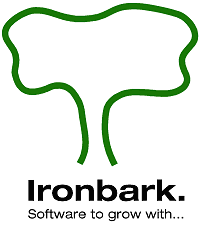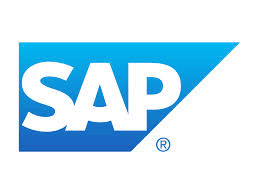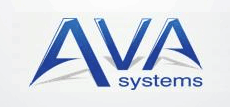What Is Quotation Management Software?
Quotation management software is a program that simplifies the process of making and maintaining quotes for products and services. It is a critical solution for organizations of all kinds, from small startups to major corporations, since it saves time, improves accuracy, and improves customer experience. At its foundation, quotation management software enables users to generate professional-looking quotes quickly and effortlessly.
It often includes a database of the company's products or services, as well as the prices and terms for each. This enables sales teams to produce quotes on-the-go without having to manually enter all of the information for each quote. Furthermore, quotation management software frequently includes configurable templates that may be adjusted to match the brand's aesthetic and feel.
This not only helps to maintain brand consistency, but it also improves quotation efficiency. One of the most distinguishing advantages of quotation management software is its ability to interface with other business tools. This includes CRM systems, inventory management software, and accounting software.
This interface eliminates the need for manual data entry, ensuring that all information is correct and up to date. Furthermore, quotation management software provides extensive tracking and reporting capabilities. This enables organizations to keep track of all quotes, measure success rates, and discover areas for improvement. Companies that analyze this data can make data-driven decisions to improve their quotation process and boost revenue growth.
In today's competitive marketplace, organizations must prioritize customer experience. Quotation management software improves client experience by offering quick and accurate quotations, boosting transparency, and simplifying the quoting process. This, in turn, leads to higher client satisfaction and, eventually, repeat business.
What Are The Recent Trends In Quotation Management Software?
Quotation management software has become a crucial tool for organizations of all kinds to streamline their sales processes and increase overall productivity. In recent years, this type of software has seen some noteworthy trends that have had a substantial impact on its capabilities and efficacy.
As a potential buyer of quotation management software, you must understand these trends in order to make an informed purchase that meets your company's demands.
1. Automation And Integration: Automation and integration have revolutionized quotation management software. With artificial intelligence and machine learning, these systems can now produce and deliver bids depending on user-defined criteria and parameters. This not only saves time, but also lowers the likelihood of human error, resulting in more accurate quotes. Furthermore, connectivity with other business tools such as CRM, inventory management, and accounting software enables a continuous flow of data, further optimizing the sales process.
2. Cloud-Based Solutions: Cloud-based quotation management software has gained popularity in recent years due to its multiple advantages. These include remote access, real-time updates, and cost-effectiveness, among others. As more firms shift to remote work and digital operations, the need for cloud-based solutions is expected to grow in the coming years.
3. Mobile Capabilities: Another emerging trend in quotation management software is the increased use of mobile devices during the sales process. Many software suppliers now provide mobile applications that enable sales representatives to create, maintain, and transmit quotes while on the road. This not only increases efficiency but also improves the client experience because quotations can be generated and shared promptly.
4. Analytics And Reporting: In today's data-driven business environment, analytics and reporting are critical to decision-making. Quotation management software now includes comprehensive reporting and analytics features, allowing firms to monitor key performance indicators and acquire important insights into their sales process and consumer behavior. This allows them to make data-driven decisions that improve their sales approach and customer retention.
5. Customization And Personalization: Personalization is a growing trend in many areas of business, including quotation management. Businesses may now use modern software to customize their quotes with their logo, branding, and other characteristics, making them more professional and personalized for clients. This not only leaves a lasting impression, but also enhances the whole client experience.
Benefits Of Using Quotation Management Software
Quotation management software is an essential tool for businesses of all kinds since it simplifies the process of developing, organizing, and maintaining quotes for prospective clients. From small businesses to major organizations, this software provides several advantages that can assist boost efficiency, sales, and overall customer experience.
Let's explore, we'll look at the top advantages of utilizing quotation management software, so you can make an informed decision when selecting a solution for your company.
1. Simplifies Quote Development Process: One of the key advantages of adopting quotation management software is that it streamlines the quote development process. Businesses may quickly create professional-looking quotes thanks to a simple interface and pre-designed templates. This not only saves time, but also assures that quotes are accurate and consistent.
2. Centralized Quote Storage: Manually managing and arranging quotes can be difficult, especially for firms that work with a big number of clients. Quotation management software provides a consolidated platform for storing and organizing all quotes, allowing you to easily access and track quotes for individual clients. This also minimizes the possibility of losing essential phrases amid the chaos of daily activity.
3. Task Automation: Another significant advantage of employing quotation management software is that it automates a variety of duties, including reminders, payment and approval monitoring, and report generation. This lowers manual labor and human error, allowing organizations to concentrate on more vital tasks and boost overall productivity.
4. Customizable Options: Each firm is unique, and so are its quotation requirements. Quotation management software provides configurable choices to meet the specific needs of a firm. Businesses can personalize quotes by altering templates and adding branding features to provide their clients with a more professional and personalized experience.
5. Improved Communication And Collaboration: Successful business requires efficient communication and collaboration. Quotation management software allows teams to collaborate on a quote, providing real-time updates and the option to add comments or make changes as needed. It also increases client communication by sending automated email notifications and providing a professional-looking quote.
6. Real-Time Tracking & Reporting: Quotation management software provides real-time tracking of quotes, allowing organizations to monitor the progress of each quote and discover areas for improvement. It also creates extensive reports with significant insights that may be used to make sound business decisions.
Important Factors To Consider While Purchasing Quotation Management Software?
When it comes to choosing quotation management software, there are numerous key elements to consider. The correct software may assist enhance the efficiency, accuracy, and organization of your quotation process, saving you both time and money in the long term.
Here are some important factors to consider while selecting quotation management software:
1. Features And Functionality: The first step in selecting the best quotation management software is to decide which features and functionality are critical to your business. Some fundamental capabilities to check for include the ability to create and submit quotations, follow them through the sales pipeline, and generate reports. However, based on your individual requirements, you may want to look into capabilities like connectivity with other software systems, customer portals, and customized templates.
2. User-Friendly Interface: A user-friendly interface is essential for your team to effortlessly navigate and use the product. Look for a simple, user-friendly UI. A difficult system can lead to frustration and mistakes, so choose software that your team will readily use.
3. Customizability: Because each organization has unique demands and operations, it's critical to select software that can be tailored to your individual requirements. This could include custom fields, layouts, or workflows. The more configurable the software is, the better it will fit into your business procedures.
4. Integration With Other Systems: If your company uses other software systems, it's critical to select quotation management software that can work alongside them. This will help to streamline your procedures and eliminate redundant data entry and manual labor.
5. Customer Help: Before purchasing any product, assess the quality of customer help available. Look for a company that offers responsive and helpful customer care, whether via phone, email, or live chat. Also, look for tools like tutorials, user guidelines, and FAQs to assist you troubleshoot any problems that may emerge.
6. Security: Because quotation management software saves sensitive client information, it is critical to select a safe solution. To protect your data, look for software that uses encryption, secure servers, and has strong privacy policies.
7. Pricing: Of course, price is always an important consideration when making a purchasing decision. When considering different solutions, keep your budget in mind as well as the value that the software will provide to your firm.
By keeping these key considerations in mind, you can make an informed decision when selecting quotation management software. Take your time, analyze your options, and select software that suits your business requirements and streamlines the quoting process.
What Are The Key Features To Look For In Quotation Management Software?
When making an investment in quotation management software, it is critical to carefully assess the main features that will best meet your company's demands.
To help you make an informed decision, here are the main features to look for in quotation management software:
1. Customization Options: One of the most significant aspects to look for in quotation management software is the flexibility to personalize the system to meet your individual business needs. This includes the opportunity to add your company's logo, brand colors, and personalized quote fields. Look for software with wide customization possibilities.
2. User-Friendly Interface: A user-friendly interface is crucial for all software, including quotation management software. With a simple and easy interface, you can quickly create, track, and manage quotations. This will save time and boost productivity in your sales process.
3. Integration Capabilities: Because quotation management software is designed to streamline your sales process, it must work seamlessly with your existing systems, such as CRM, accounting software, and inventory management tools. This eliminates the need for human data entry and keeps all your systems up to date.
4. Multi-Currency And Multi-Locale Support: If your company runs internationally, you must look for quotation management software that supports many currencies and languages. This will allow you to provide accurate quotes to overseas clients and improve the overall customer experience.
5. Real-Time Data Analytics: Having access to real-time data and analytics can be quite beneficial for your sales staff. A decent quotation management software should offer insights into customer behavior, quote acceptance rates, and other important information. This will enable you to make data-driven decisions and enhance your sales strategy.
6. Accessibility: In today's fast-paced business world, it is critical to have access to your quotations on-the-go. Look for software that provides cloud-based storage, so you can view your quotes from anywhere with an internet connection. This will increase teamwork and production.
7. Security: Because quotations frequently contain sensitive and secret information, it is critical to verify that the software you use has strong security protections in place. Encryption, password protection, and access controls are all features that can help keep your data secure.
Why Do Businesses Need Quotation Management Software?
In today's competitive business environment, firms are continually looking for methods to optimize their operations and stay ahead of the competition. Quote management is an often-overlooked area that can have a substantial impact on a company's success. Here is when quotation management software comes into play. Quotation management software is a solution that simplifies and automates the entire quotation process, from creating bids to tracking their status and finally closing the purchase.
It provides organizations with a single platform to handle all of their quotes, assuring efficiency and accuracy throughout the process. One of the primary reasons why firms use quotation management software is to save time and boost productivity. Traditionally, organizations would manually generate quotes using spreadsheets or word processing software, which resulted in inaccuracies and time-consuming processes.
Businesses that use quotation management software can considerably cut the time it takes to develop and submit quotes, freeing up the sales staff to focus on other important activities. Furthermore, quotation management software can assist organizations keep their quotes consistent. This software generates uniform quotes by using predetermined templates and conventional pricing structures, eliminating space for error and ensuring a professional image with consumers.
Another key benefit of adopting quotation management software is the ability to track quotes and provide useful insights. Businesses can track the status of each quote and detect bottlenecks in the sales process. This information can then be utilized to make informed decisions about future pricing strategies and pinpoint areas for improvement.Quotation management software provides a secure and organized platform for organizing quotes.
A consolidated system allows firms to access all of their quotations and related information in one location, making it easier to retrieve and track quotes even years after they were made. Finally, quotation management software can assist companies improve their customer service. Businesses may create a seamless and efficient quotation experience for their clients by automating operations, following up on leads, and responding quickly, resulting in greater customer satisfaction and loyalty.
How Much Time Is Required To Implement Quotation Management Software?
The implementation time for Quotation Management Software is mostly determined by factors such as business size, operational complexity, and customisation requirements. In general, it can take a few weeks to many months. To provide a more specific estimate, we divided the implementation process into stages and established a timeframe for each.
It is crucial to remember that this timeframe is not set in stone and may change depending on the specific demands of each firm.
1. Data Migration (2-4 weeks): The first step in deploying Quotation Management Software is to transfer all of your present data to the new system. This comprises customer information, product specifications, quotations, and any other pertinent information. The time necessary for this process is determined by the volume of data and can range from 2 to 4 weeks.
2. Training And Familiarization (1-2 weeks): Once the data migration is complete, your personnel must be instructed on how to use the new program efficiently. This stage entails familiarizing yourself with the software's features and functionalities, producing new quotes, and learning how to generate reports and analytics. This process can take up to two weeks, depending on the software's complexity.
3. Customization (2-4 weeks): Many firms require some amount of customization in their Quotation Management Software to meet their specific requirements and procedures. This method entails working closely with the software provider to customize the software to your specific needs. Depending on the extent of personalization, this stage can take anywhere between 2 and 4 weeks.
4. Testing And Integration (1-2 weeks): Before going live with the software, it is critical to extensively test it to ensure that it works properly and integrates with other systems such as CRM or accounting software. This process may take 1-2 weeks.
5. Go-Live And Post-Implementation Support (ongoing): Once the program has been fully deployed, your team can begin using it for day-to-day activities. However, it is usual to experience some initial teething problems, which can be rectified with the software provider's post-implementation support services. This stage is ongoing and may extend for several weeks after the program becomes live.
What Is The Level Of Customization Available In Quotation Management Software?
When it comes to quotation management software, one of the most important considerations is the level of customization offered. This refers to the software's capacity to adapt to your company's individual demands and operations, as opposed to taking a one-size-fits-all approach. The level of customization provided varies widely between quotation management software, so examine your individual needs before making a purchase.
Some software may provide basic customization options such as adding your company logo or altering email templates, while others may allow for more complex modification, such as defining custom pricing rules and workflows. When determining the extent of customization offered, it is critical to examine the software's overall adaptability.
This includes the ability to adjust fields, templates, and pricing rules, as well as the simplicity of making these changes without technical knowledge. It is also important to consider integration capabilities. A fully customized quotation management software should be able to interact with other systems and tools that your company may already use, allowing for a more efficient workflow and data management.
Which Industries Can Benefit The Most From Quotation Management Software?
Quotation management software, also known as quotation management software, is a very useful tool for businesses of all sizes and industries. However, certain businesses stand to benefit the most from employing this type of software.
Let's explore, we'll look at the top sectors where integrating quotation management software can result in major improvements in sales processes and revenue.
1. Manufacturing Industry: The manufacturing industry has a complex process for generating and delivering items. Manufacturers can use quotation management software to streamline the product pricing and quoting processes, which is critical in this business. Manufacturers can also use the program to track costs and correctly calculate profit margins, ensuring that their quotations are lucrative. Furthermore, the software generates thorough cost breakdowns and proposals, making it easier to connect with clients and close business faster.
2. Construction Industry: The construction business can also profit substantially from quotation management software. Construction projects have many stakeholders and sophisticated cost calculations. The program allows construction companies to generate precise and complete quotes that include material and labor costs, prospective markups, and reductions. This promotes better project planning and budgeting, resulting in increased profitability and customer satisfaction.
3. Service-Based Businesses: Quote management software can be extremely beneficial to service-based firms like consultants, contractors, and agencies. These organizations frequently have to issue personalized quotes to their clients, and the software makes this process easier. It enables the quick development of professional-looking quotes, modification based on client requirements, and easy tracking of quote status. This leads to speedier response times, higher customer satisfaction, and better conversion rates.
4. Retail Industry: The retail industry includes a vast number of products, frequent price adjustments, and a variety of discount tactics. Retailers can better handle these complex pricing arrangements with quotation management software. It enables quick product price updates, the creation of special offers and discounts, and the analysis of sales data to help businesses make smart pricing decisions. This leads to increased sales and profitability for retailers.
5. B2B Businesses: Businesses that primarily sell to other businesses (B2B) might reap significant benefits from quotation management software. This program enables B2B sales teams to generate accurate and competitive quotes, monitor discounts and pricing agreements, and manage different product catalogs and price lists. It also offers a unified platform for organizing all sales quotes, making it easier for sales teams to coordinate and keep track of their bids.
Conclusion
To summarize, selecting the correct quotation management software is critical for streamlining your business operations and enhancing efficiency. Before making a decision, make sure to analyze your specific business objectives, budget, and the features given by other software options. We propose that you begin your search by determining your major objectives for using quotation management software and prioritizing the features that are most important to you.
This can help you limit down your alternatives and compare various software solutions. Consider the software's scalability and interoperability with your existing systems and future growth goals. It is also critical to investigate the software company's customer service and training options to guarantee that your team has a seamless adoption and usage experience.
Finally, don't forget to study reviews and solicit input from other businesses in your field who have previously utilized the software. This can provide useful information and allow you to make an informed decision. By keeping these things in mind and thoroughly researching your alternatives, you can choose the best quotation management software to match your company's demands while also driving growth and success. Thank you for utilizing our buyer's guide; we hope it was a helpful resource in your software selection.






















